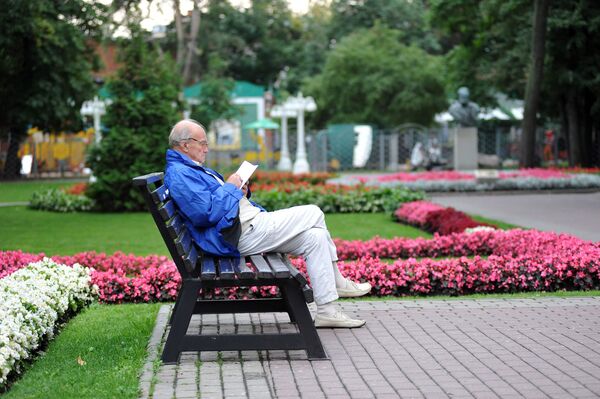MOSCOW, August 8 (RIA Novosti) – 700,000 British citizens aged over 60, who have no mobile phones or lack internet access, are at risk of experiencing social isolation by 2030 as more services get primarily provided via Internet, a new study claims.
The report, commissioned by a UK charity Friends of the Elderly, states that up to 90 percent (more than 6 million) of the elderly in the UK will be avid internet users by 2030.
The study, titled “The Future of Loneliness,” states that social exclusion will be less frequent. “However, whether a less isolated, more ‘connected’ society is going to be a less lonely society is open to question,” the report said. Such factors as staying in touch with children, being married, having access to technology and income level also determine whether a senior person feels lonely or not.
According to a study conducted this year, over 5 million older people residing in the UK felt lonely. That figure is expected to increase by 40% in the next 15 years, meaning at least 7 million elderly people will experience loneliness by 2030. The report singles out rapidly aging population and falling marriage rates as responsible for the trend.
The charity views technology as a means to improving the lives of older people. For instance, numerous gadgets as well as social networks help enhance social contact by adding new types of interaction. “New communications technology plus greater mobility plus increasingly sociable habits means that older people are communicating more than ever,” the report states, adding that it is still the quality not simply the quantity of interaction that matters.
On August 7, Friends of the Elderly launched a campaign aimed at encouraging people to interact with their elderly neighbors in hopes of changing the future of loneliness. The initiative named “Be a Friend” is largely supported by UK Prime Minister David Cameron. “Small acts of friendship, such as calling in on an elderly neighbour, can have a huge impact,” he said in a statement published on the campaign’s website. “The Be a Friend campaign will bring generations together to spark new and enduring friendships across the length and breadth of the country,” the prime minister added.
Still, more effort is required to help the elderly tackle loneliness. “At the moment we aren't doing enough in [the UK] to help older people avoid and overcome loneliness, and many of the local services that we know older people value, like lunch clubs, are struggling to survive because of council funding cuts,” Caroline Abrahams, director of the charity Age UK, said in a statement published on the charity’s official website.
Loneliness may lead to a decline in physical and mental health, the UK National Health Service warns. Elderly people can improve their life by being more active in their community, learning to use computers and speaking to friends and relatives on the phone on a regular basis.



